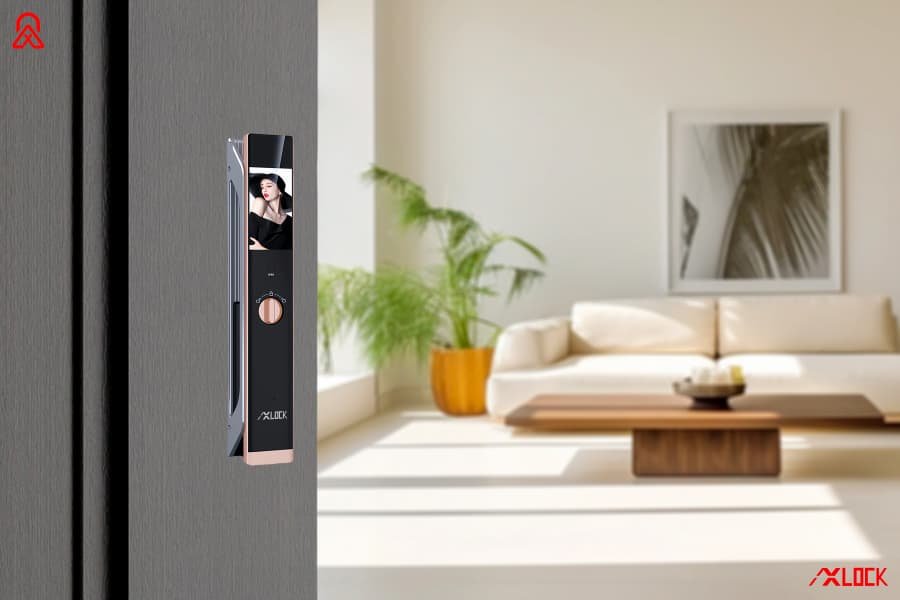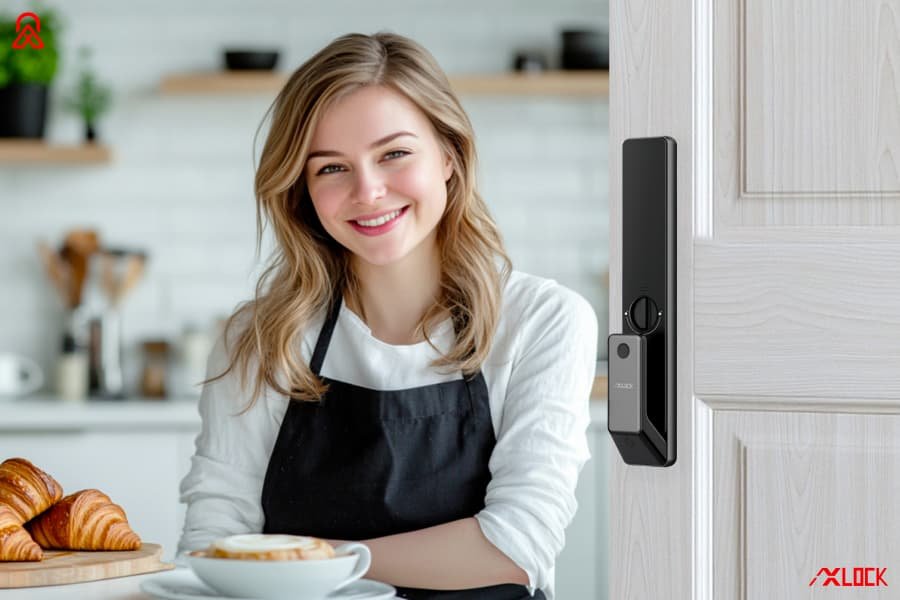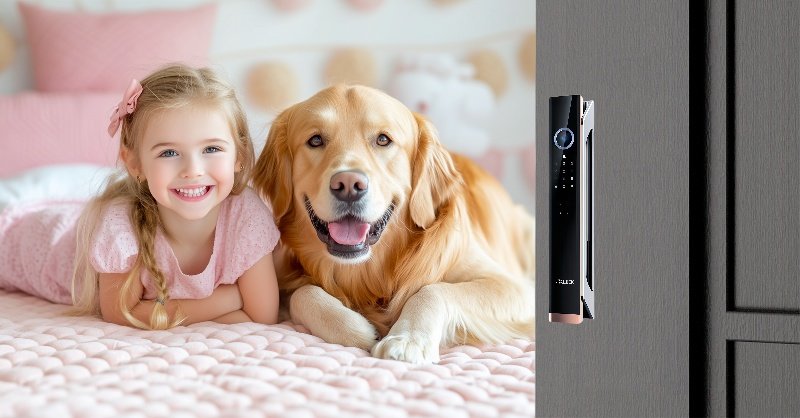Are smart locks safe? Yes, they offer advanced security features like encryption, two-factor authentication, and access control to protect against unauthorized access. However, like all connected devices, they have potential vulnerabilities. This guide will help you understand how smart locks work and how to maximize their safety.
Key Takeaways
- Smart locks enhance security through advanced features like encryption, two-factor authentication, and access control, making them safer than traditional locks.
- While smart locks can be susceptible to hacking, using strong passwords, regular firmware updates, and choosing high-quality locks significantly reduces this risk.
- Smart locks offer keyless convenience and improved resistance to lock picking, making them user-friendly and secure options for various residential and commercial applications.
Understanding Smart Lock Security Features
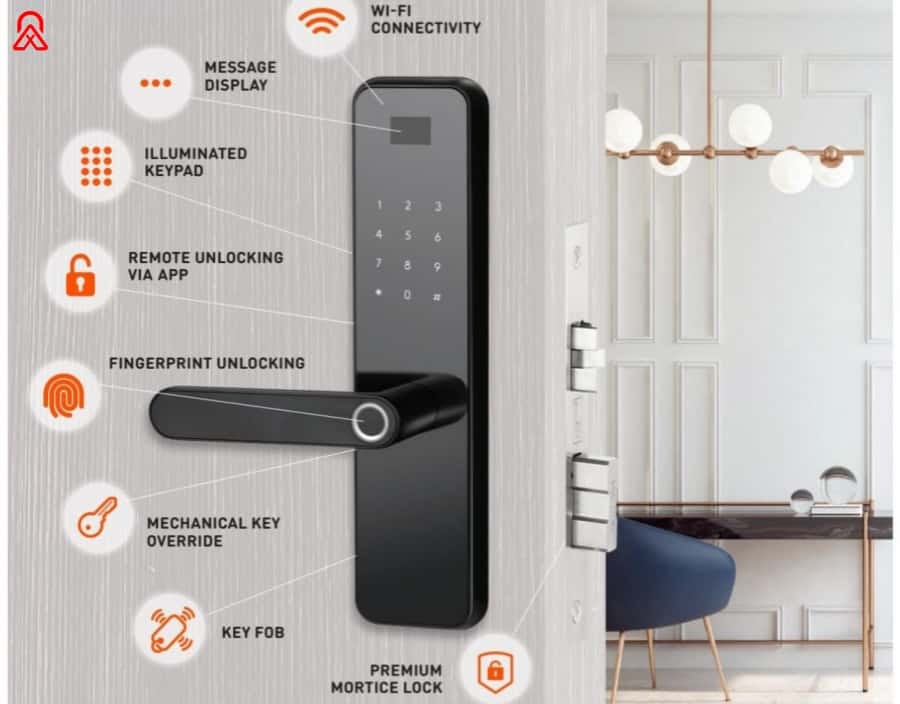
Smart locks are designed with advanced security features that protect against unauthorized access. These features include encryption, two-factor authentication, and access control. Encryption safeguards communication between the lock and connected devices, two-factor authentication adds an extra layer of security, and access control allows users to manage who can access their home and when.
These features significantly contribute to the security enhancements provided by smart locks.
Encryption
Encryption plays an essential role in the security of smart locks, as it safeguards sensitive information during its transfer. By making the communication between smart locks and connected devices indecipherable to outsiders, encryption considerably diminishes the likelihood of unapproved entry.
By employing encryption for data transmission, home security systems that feature smart locks deliver a strong barrier against digital attacks. This ensures your home remains secure and shielded from potential risks.
Two-Factor Authentication
The use of two-factor authentication (2FA) is on the rise with smart locks to enhance security. By demanding an additional form of verification, such as entering a code received on one’s phone or providing a fingerprint alongside the usual password, this feature significantly reinforces protection.
By incorporating 2FA into your smart lock systems, it becomes substantially more challenging for unauthorized individuals to obtain access, thereby bolstering the security framework of your intelligent home setup.
Access Control
Smart locks provide users with the ability to dictate who is allowed entry into their homes and at what times. By generating distinct access codes for individuals such as relatives, guests, or maintenance staff, users can grant or rescind permission seamlessly. This level of control bolsters security by eliminating the necessity for physical spare keys that could potentially be misplaced or appropriated illicitly.
These intelligent locking systems have the capacity to alert homeowners instantly when an access code has been utilized. Such notifications play a crucial role in upholding the security framework of one’s residence.
How Does Smart Lock Work?
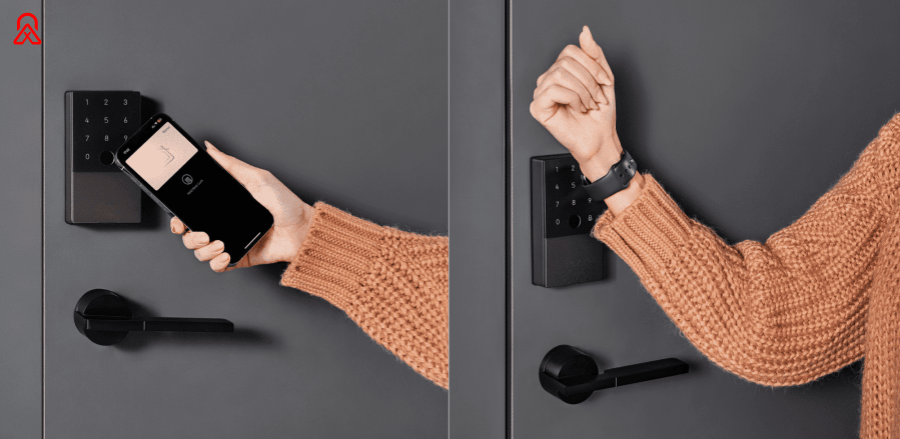
Smart locks are electronic devices that offer a secure method of keyless entry to your home, employing advanced technology. These smart devices enable remote control over your door’s lock by connecting with smartphones or other smart gadgets through Bluetooth or Wi-Fi connectivity. To reinforce the security of these locks, they come equipped with encryption to safeguard data transmission, two-factor authentication for bolstered security measures, and access management capabilities so you can dictate who is allowed into your residence.
Understanding the interplay between these various features sheds light on both the convenience and robust security provided by smart lock technology.
Comparing Smart Locks to Traditional Locks
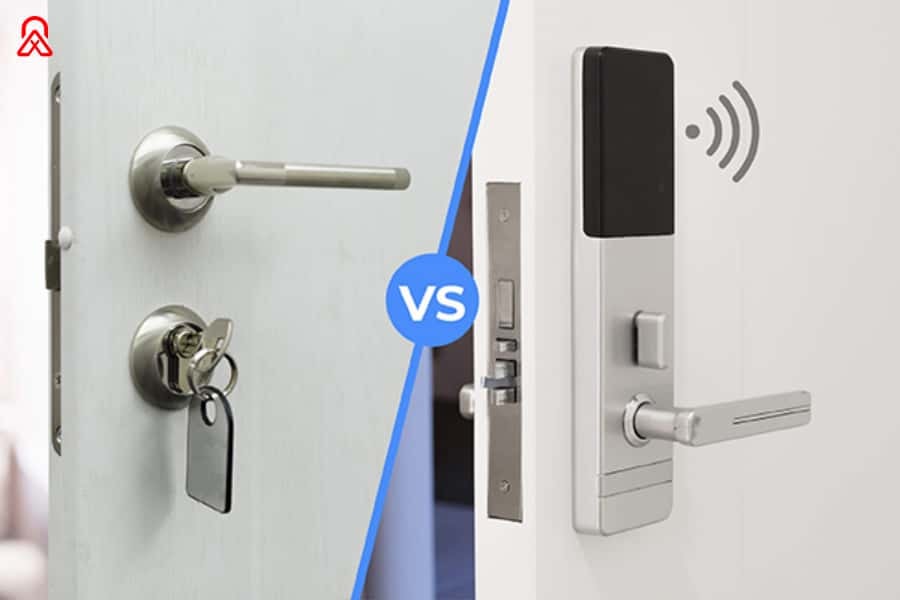
Smart door locks offer an enhanced level of convenience by eliminating the need for physical keys, which can be lost. They also boast increased resilience against lock-picking methods that often target traditional locks, thus providing a user-friendly experience without keys.
Smart door locks are designed to discourage burglars with security measures on par with those found in conventional deadbolts and door locks. By selecting smart locks from trusted manufacturers, you can trust their physical protection are as safe as traditional lock.
Keyless Convenience
Smart locks offer the keyless advantage of removing the necessity for traditional keys, which simplifies granting entry to family, friends, or service personnel without fretting over misplaced keys. The benefit of convenience is amplified by remote access capabilities that enable you to control your door lock from any location via a smartphone.
They reduce the hassle and security risks of dealing with spare keys, which can easily be lost or stolen.
Resistance to Picking
Compared to conventional locks, smart locks are better equipped to withstand lock-picking attempts. Techniques such as picking and bumping that could compromise traditional locks have no effect on smart ones because they lack a keyhole for intruders to exploit.
Because of their increased resilience against picking methods, smart locks serve as a stronger safeguard for home security.
Can Smart Locks Be Hacked?
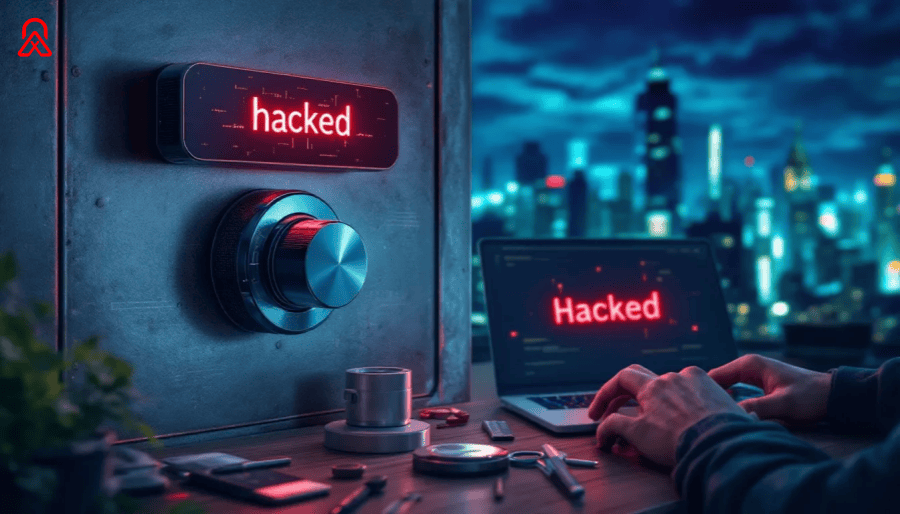
Smart locks, much like any other smart devices, are susceptible to potential cybersecurity threats. Recognized manufacturers of smart locks take this into account and integrate substantial security features to make it difficult for unauthorized individuals to gain access. It is crucial to address these risks in order to enhance the overall safety provided by smart lock systems.
In our examination, we will delve into how vulnerable smart locks can be when faced with hacking attempts and what safeguards have been established to protect against such intrusions.
Are Smart Locks Susceptible to Hacking?
Certainly, the vulnerability of smart locks to hacking attempts varies based on several elements such as the caliber of encryption they employ, whether their software is outdated or not, and the strength of passwords used. Smart locks that incorporate sophisticated security measures drastically diminish the chances of them being compromised.
The enhancement in security can be bolstered by ensuring frequent updates to firmware alongside maintaining robust and distinctive passwords for each lock.
How Do Smart Locks Protect Against Hacking?
Modern smart locks are designed with features like end-to-end encryption, secure communication protocols, and multi-factor authentication to protect against hacking. These measures protect data and complicate hackers’ attempts to intercept or manipulate access.
Weak passwords or outdated firmware can expose vulnerabilities, so following best practices is crucial for maintaining security.
How Leading Smart Lock Manufacturers Ensure Top-Notch Security
Famous manufacturers of smart locks place a strong emphasis on security, ensuring they conform to current encryption protocols and frequently release software updates to counteract new hacking techniques. Research indicates that locks equipped with the most recent software versions and properly configured by users are substantially more resistant to unauthorized access. By selecting accredited products and adhering to recommended practices, individuals can trust in the heightened security provided by these advanced smart locking systems.
Applications for Smart Locks
Smart locks are universal and can be applied to numerous environments such as homes, business premises, apartment complexes, and various institutions. They offer the benefits of keyless entry, the ability to grant access remotely, and improved security features which make them an appealing choice for a multitude of uses.
Smart locks offer significant benefits in a variety of settings.
Residential Properties
Smart locks in residential settings offer the advantage of keyless entry, presenting families with the convenience of assigning distinct codes to each member or visitor. These intelligent locking systems are also ideal for landlords who can oversee access from afar, modify codes after a tenant leaves, and monitor who enters and when.
For holiday rentals like Airbnb, smart locks simplify guest access by using temporary passcodes. This eliminates the need for physical key exchanges while enhancing security and convenience.
Commercial Buildings
In commercial buildings, smart locks help control employee access with customizable schedules and logs for tracking entry. Retail stores and warehouses can monitor access for staff and vendors, securing inventory and sensitive areas.
Reducing the use of physical keys lowers the risk of loss or theft. Smart locks can be quickly reprogrammed for new staff, improving security without the hassle of replacing keys.
Multi-Unit Buildings
In apartments and condos, smart locks improve security and simplify entry for both residents and maintenance staff. These locks make access easier in multi-unit buildings while maintaining a high level of security, enhancing the overall living experience.
Institutions
Smart locks are utilized in both educational and healthcare settings to bolster security measures and regulate entry into restricted zones. They grant controlled, secure access to students and faculty within educational institutions, elevating the level of safety provided. In healthcare environments, smart locks play a critical role in limiting entry to confidential areas thereby safeguarding patient privacy as well as their wellbeing.
By implementing smart locks across these establishments, not only is the security infrastructure strengthened, but also it contributes significantly to improving operational effectiveness.
How to Make Smart Locks Safer
Ensuring enhanced security for smart locks requires adhering to optimal practices, which include selecting smart locks equipped with sophisticated security features, activating two-factor authentication, and establishing robust, distinctive passwords. By taking these steps, you can considerably fortify the safety of your lock system and safeguard your residence against possible risks.
Choose Locks with Advanced Security Features
When selecting a smart lock, it’s crucial to understand that they vary in their level of security. Opt for smart locks equipped with strong encryption, frequent software updates, and support for multi-factor authentication to enhance resistance against hacking, tampering, or physical intrusions.
Such features fortify the resilience of your smart lock system and contribute to dependable security within your home.
Enable Two-Factor Authentication (2FA)
Incorporating two-factor authentication into your smart lock enhances its security by necessitating an additional form of verification, like a code dispatched to your phone, beyond the primary password. This extra step substantially complicates any attempts at unauthorized access, thereby bolstering the lock’s overall protection.
Use Strong, Unique Passwords
Strong, unique passwords are essential for maintaining smart lock security. Combine letters, numbers, and symbols, and avoid easily guessed passwords like “123456” or “password.”
Strong passwords make it harder for hackers to access your system, ensuring long-term security.
FAQs About Smart Lock Safety
To address common concerns about smart locks, we’ve compiled a list of frequently asked questions.
This section provides clear answers to help you make informed decisions about smart lock safety.
Can Smart Locks Be Hacked?
Yes, smart locks can be hacked. Despite the fact that no device can be completely protected against hacking, respected manufacturers of smart locks employ stringent encryption and security measures to reduce the hacked risks. Strengthening these defenses through consistent firmware updates and creating strong, distinctive passwords can make your lock safer.
Are smart locks more secure than traditional locks?
Yes, smart lock is more secure thank traditional lock. Smart locks provide enhanced security and convenience with features like customizable user codes, access monitoring through activity logs, and remote control capabilities. To maximize their effectiveness and prevent unauthorized entry, it’s important to set them up correctly, maintain them regularly, and follow recommended guidelines, including enabling automatic locking.
Tips for Choosing the Most Secure Smart Locks
To choose the most secure smart locks, prioritize models with advanced encryption, two-factor authentication, and tamper alerts. Look for reputable brands with strong reviews, regular firmware updates, and compatibility with secure smart home systems. Ensure easy installation, reliable connectivity, and features like access logs to enhance both security and convenience.
Conclusion: Are Smart Locks Safe?
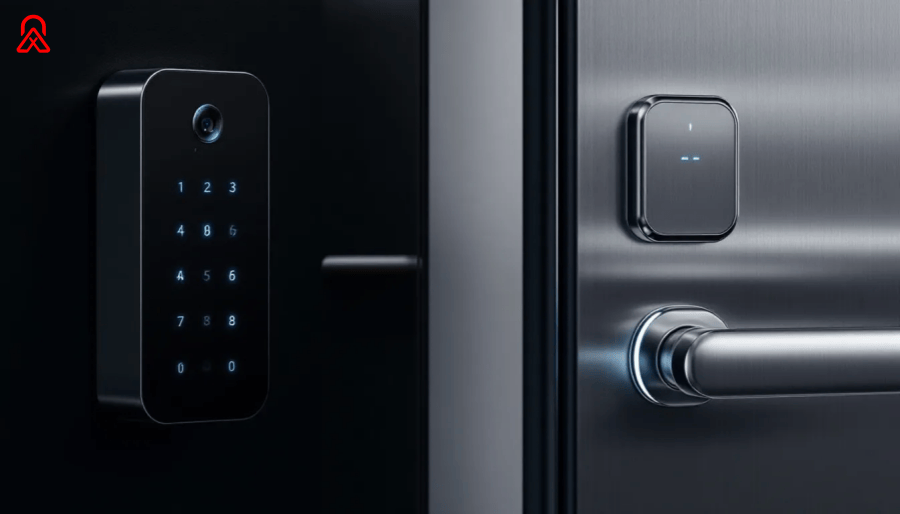
Smart door locks present a dependable home security option, delivering both ease of use and increased safeguarding measures. These smart devices include advanced features such as encryption, dual-factor authentication, and the ability to control who gains access to your residence.
To maintain the integrity of your door lock system’s security, opt for trusted brands, keep its firmware up-to-date and adhere to recommended usage protocols. With these steps in place, you can adopt smart locks with assurance that they will contribute significantly to your home’s protection and offer you tranquility regarding safety matters.
Summary
Smart locks present a multitude of advantages. To conventional locks, such as the convenience of keyless entry, heightened defense against lock picking attempts, and sophisticated security enhancements. Though not completely hack-proof, their safety can be substantially improved by adhering to best practices like employing robust passwords and activating two-factor authentication. These smart locking mechanisms are apt for a diverse range of settings from homes to business establishments and educational institutions offering secure and convenient control over access. By understanding their functionalities along with any associated vulnerabilities, you’re equipped to make a knowledgeable choice about integrating smart locks into your home security system.

